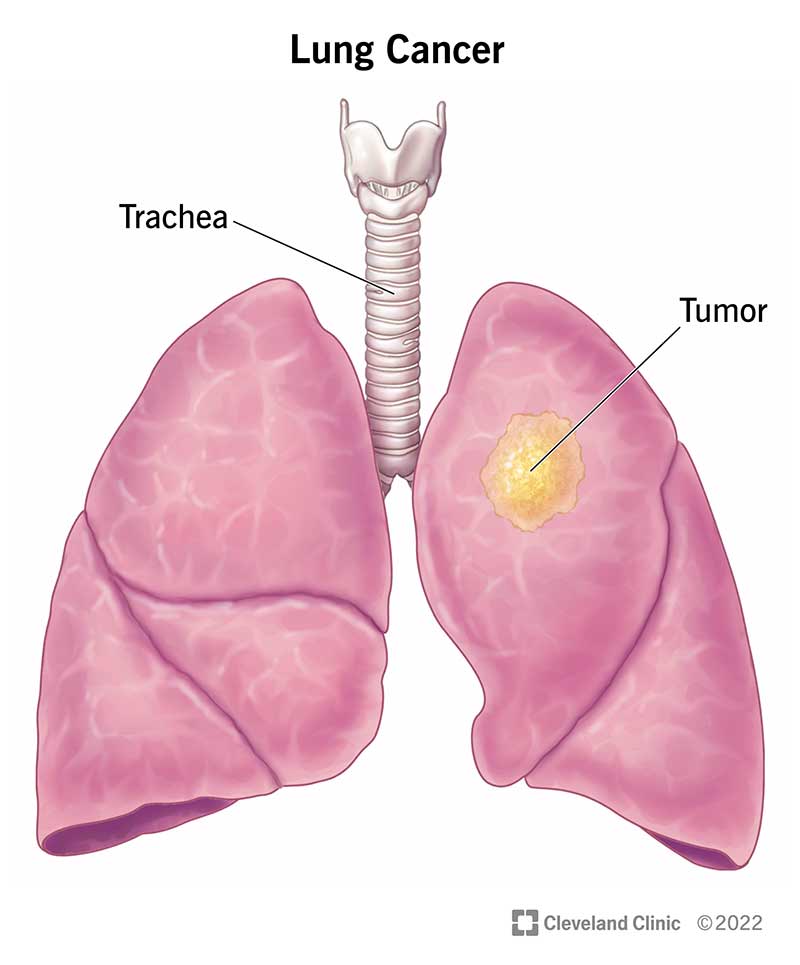Lung Cancer
Lung cancer is a type of cancer that begins in the cells of the lungs. It is one of the most common and deadliest types of cancer worldwide. The two main types of lung cancer are non-small cell lung cancer (NSCLC) and small cell lung cancer (SCLC). Here are some key points about lung cancer:

- Risk Factors:
- Smoking: Cigarette smoking is the leading cause of lung cancer. The risk increases with the number of cigarettes smoked and the duration of smoking.
- Secondhand smoke: Exposure to tobacco smoke from others also increases the risk.
- Radon exposure: Radon is a naturally occurring gas that can accumulate in homes and is a known cause of lung cancer.
- Occupational exposure: Certain workplace exposures to carcinogens, such as asbestos, arsenic, and certain chemicals, can increase the risk.
- Signs and Symptoms:
- Persistent cough.
- Chest pain.
- Shortness of breath.
- Unexplained weight loss.
- Fatigue.
- Coughing up blood.
- Diagnosis:
- Imaging tests: Chest X-rays, CT scans, and PET scans can help detect abnormalities in the lungs.
- Biopsy: Removing a small tissue sample for examination under a microscope to confirm the presence of cancer.
- Sputum cytology: Examining a sample of mucus coughed up from the lungs to check for cancer cells.
- Types of Lung Cancer:
- Non-Small Cell Lung Cancer (NSCLC): This is the most common type, comprising about 85% of lung cancers. It includes subtypes like adenocarcinoma, squamous cell carcinoma, and large cell carcinoma.
- Small Cell Lung Cancer (SCLC): This type tends to grow more quickly and is often associated with a history of smoking.
- Staging:
- Staging helps determine the extent of the cancer and guides treatment decisions.
- Treatment Options:
- Surgery: Removing the tumor or affected part of the lung.
- Radiation therapy: Using high-energy rays to target and kill cancer cells.
- Chemotherapy: Using drugs to kill cancer cells or stop their growth.
- Targeted therapy and immunotherapy: These treatments target specific molecules involved in cancer growth or stimulate the immune system to fight cancer.
- Survival Rates:
- Survival rates for lung cancer vary widely and depend on factors such as the stage at diagnosis, the type of lung cancer, and the overall health of the individual.
- Prevention:
- Quit smoking: This is the most effective way to prevent lung cancer and other smoking-related diseases.
- Avoid secondhand smoke: Minimize exposure to tobacco smoke from others.
- Radon testing: Test homes for radon and take measures to reduce exposure if necessary.





